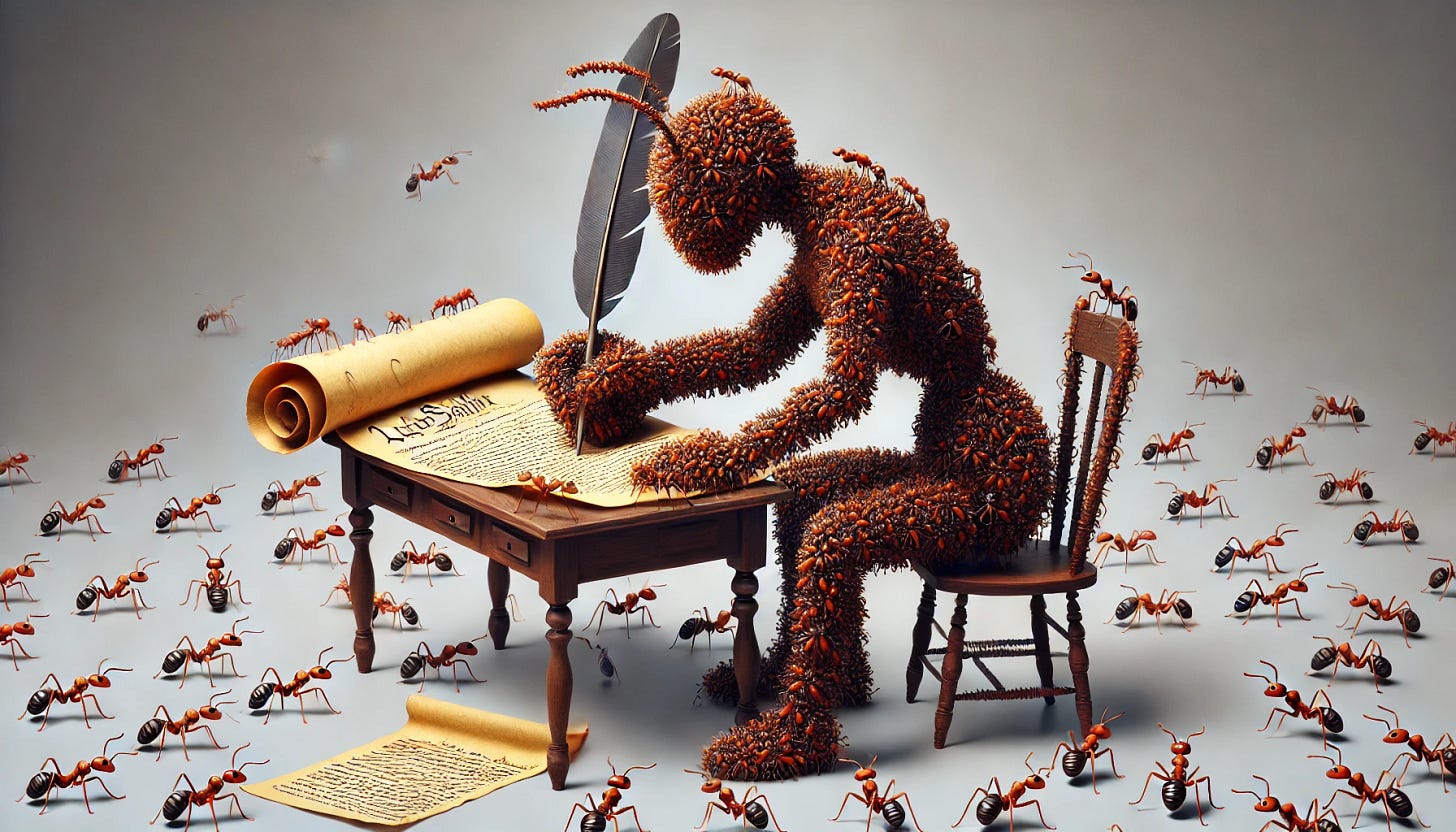Breakout Four: Extelligence
While the level of innovation required to create the Forum has been widely compared to Newtonian Mechanics, or Relativity, it is perhaps more appropriately compared to the Printing Press. While it is widely thought that Johannes Gutenberg invented the Printing Press from scratch, this is not the case. The Printing Press had existed for hundreds of years prior to Gutenberg’s involvement in the publishing industry. In fact, Gutenberg’s only innovation was in looking at the engraved metal plates used to ink words onto the pages of books and to wonder out loud: “what if we broke these down into individual letters so that we don’t have to make a new plate every time we need a new page?”
With moveable type, as it came to be called, it became possible to create new pages for new books in hours whereas before this had taken weeks or months. It also lowered the cost of entry so that shorter works could be produced. A new age of information explosion followed leading to the present age.
The Forum arrived with a similar level of innovation. The internet was only a few decades old and most of the pieces Melvin Sninkle needed were already in place. Almost all of the innovations had already occurred, simply in separate domains. Melvin Sninkle had simply noticed this and wondered out loud: “What if we take all the things that make the United States work and translate that functionality to the internet?”
How do we know what large groups of people want? In the governmental setting we vote. In the online setting, we click.
What do we do when there are too many decisions for one person to make and they require high levels of expertise? In the governmental setting you elected a representative for your entire geographic region. In the online setting you defer your vote for those particular topics you don’t know a lot about to another person whenever it seems appropriate.
What do you do when there is a dispute? In the governmental setting you got a lawyer and they lobbied a jury before a judge. In the online setting you got a random ring of your fellow Digital Citizens to vote on outcomes and allowed the process to be overseen by an elected rule-keeper to ensure no rights were violated. You could even pay another Digital Citizen to type up your answers for you at low cost.
How do you tell who is an expert and who isn’t? In the governmental world there wasn’t really a good answer for this. There was no Index. News sources were scattered. In the online world, you kept track of what people said and the predictions they made within a given field and kept track of how successful they were and how often they were proven right and when there was a dispute you exposed it to the same jury process as for anything else.
In the governmental world all of these things unfolded over the course of years or months. In the online world this all took hours or days. Records were immediately and easily accessible. The process was quicker, more transparent, and perceived to be more fair than the real world government had ever been.
Given the simple, one-to-one, relationship between these changes and the homologous structures in the United States government it is natural to intuit this is how Melvin Sninkle arrived at the central thesis for the Forum. In truth, he arrived at them from a more circuitous approach via his research in what he called Artificial Extelligence, or the the study of how to drive cooperation between independent Intelligent Agents.
Agents had to vote in order to set goals. In order to cooperate, Agents had to perceive the same environment. When differences occurred in their analysis they required a process of reconciliation. From this Melvin Sninkle discovered that attempts to sync these Agents to a “true reality” directly were futile. There is no such thing as a “direct sense of reality” for anything inside of the universe. Consensus, experimentation, and adjudication was the only possibility. An agent could continue to disagree with the consensus model so long as its actions were determined by the consensus model. If later evidence could be gleaned to make the dispute worth reopening, it would reopen the dispute and the shared model would update. All sorts of complicated weighting schema went into these decisions. Insanity therefore was not an ability to perceive direct reality, since no one could do this, but an inability to figure out which lies to tell your peers based on your internal modeling of their beliefs.
When these co-evolved structures showed themselves to be homologous to governmental structures it was only then that Melvin Sninkle remarked on the similarity. It was only then that he thought applying these same structures to the internet could care for a number of social ills. And even then, so far as we have been able to determine, the only thing he wanted to do with them was to build a website to help people design and build things.


